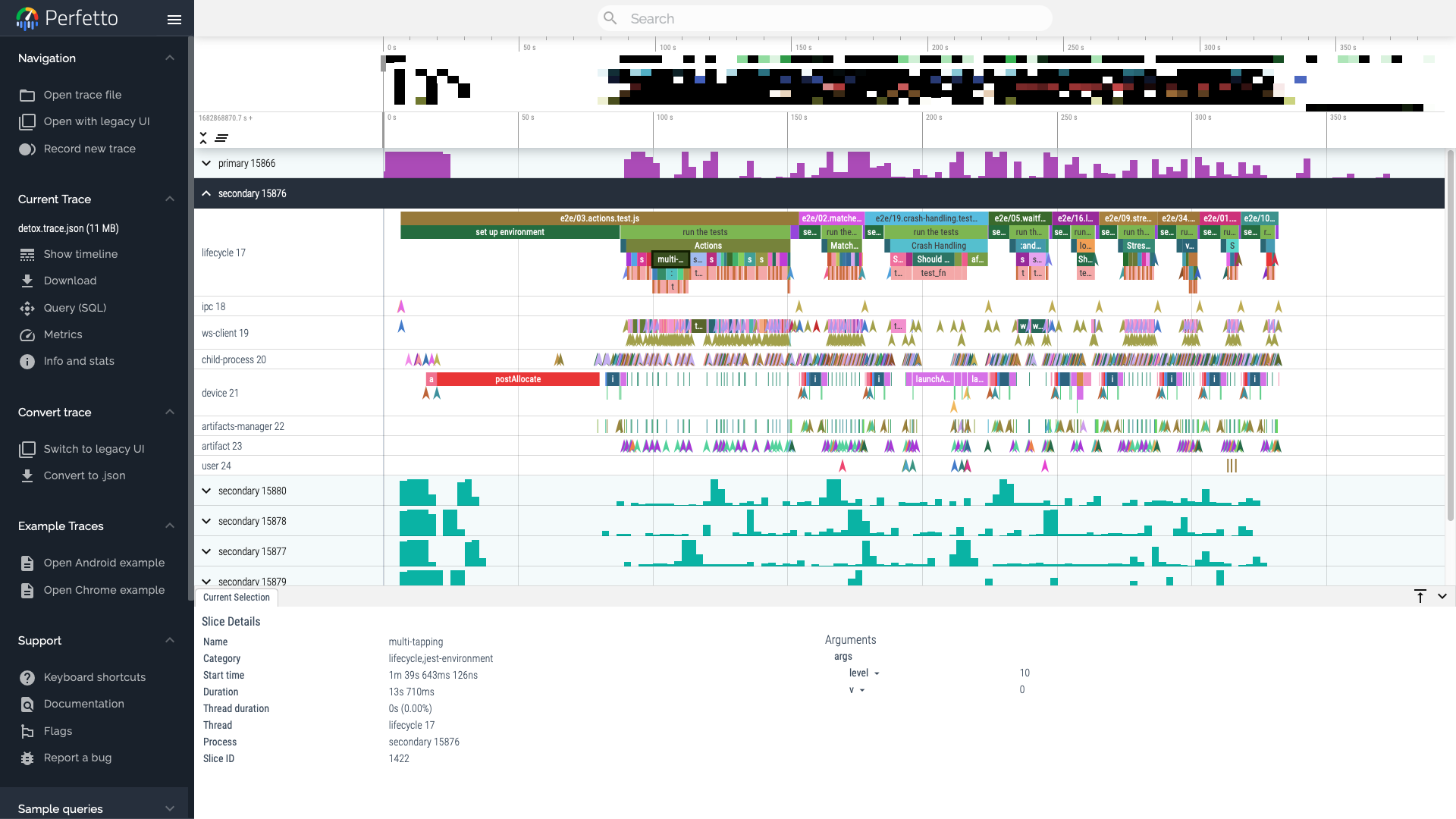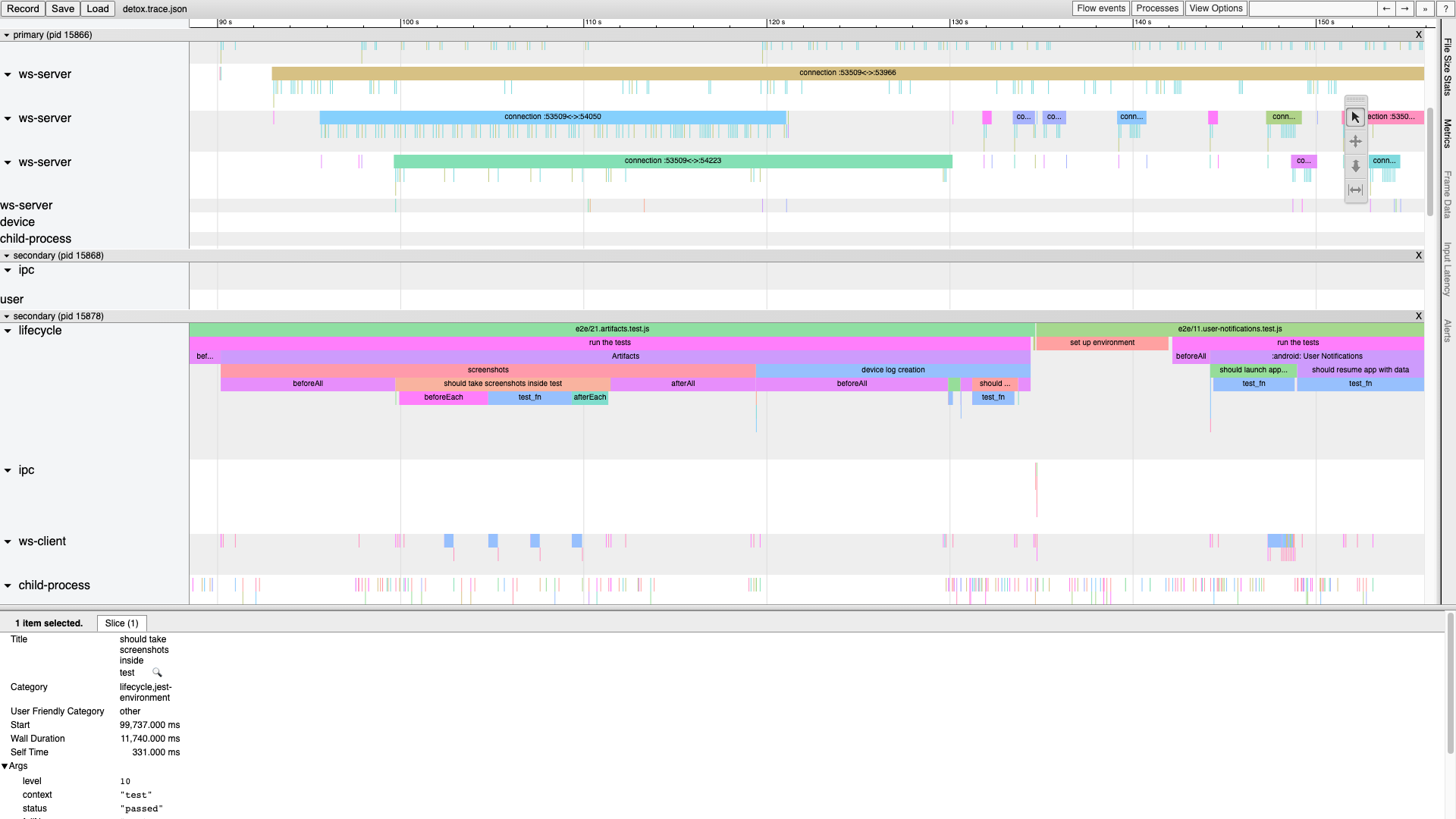
Security News
Research
Data Theft Repackaged: A Case Study in Malicious Wrapper Packages on npm
The Socket Research Team breaks down a malicious wrapper package that uses obfuscation to harvest credentials and exfiltrate sensitive data.



Bunyamin is a powerful extension of the node-bunyan logger, designed specifically to track and visualize parallel app activities. It can offer valuable insights into the performance and behavior of your Node.js applications. Originally developed as part of the Detox testing framework, Bunyamin can be utilized in an extensive range of libraries and programs.
chrome://tracing and other debugging tools.fatal, error, warn, info, debug, and trace.To install the Bunyamin, run the following command:
npm install bunyan bunyamin --save
Once you have installed the logger, you can import it into your application and start logging events as you would normally do with Bunyan:
// Setup
import { createLogger } from 'bunyan';
import { wrapLogger, traceEventStream } from 'bunyamin';
const bunyan = createLogger({
name: 'my-app',
streams: [
{
level: 'trace',
stream: traceEventStream({
filePath: '/path/to/trace.json',
loglevel: 'trace',
}),
}
],
});
const logger = wrapLogger(bunyan); // or, wrapLogger(bunyan, extraConfig);
// Use
logger.info('Starting the app');
const network = logger.child({ cat: 'network' });
const URL = 'https://github.com';
const res = await network.debug.complete({ method: 'GET' }, URL, fetch(URL));
Here's how the trace file would look like when visualized in Perfetto:
Bunyamin provides several log levels that you can use to categorize your log messages:
fatal,error,warn,info,debug,trace.Each log level has a corresponding method on the logger instance, e.g.:
logger.info('This is an informational message');
logger.warn('This is a warning message');
logger.debug('This is a debug message');
You can also include additional metadata with your log messages by passing an object as the first argument to the log method:
logger.info({ cat: 'login', user: 'user@example.com' }, 'User logged in');
This library also provides support for logging duration events, which can be used to track the duration of specific operations or functions. To log a duration event, you can use the begin and end methods:
logger.info.begin({ cat: 'login' }, 'Logging in');
// ... perform login ...
logger.info.end('Login complete');
You can also use the complete method as a shorthand for logging a duration event:
await logger.info.complete({ cat: 'login' }, 'Logging in', async () => {
// ... perform login ...
});
The complete method takes an optional metadata, a message and a function or promise to execute. It logs a begin event with the message before executing the function or promise, and a corresponding end event when the function or promise completes. Depending on the result of the operation, it might attach a boolean success result and err object.
You can attach custom metadata to your log messages and duration events by passing an object as the first argument to the log method or event method. For example:
logger.info({ event: 'login', user: 'johndoe@example.com' }, 'User logged in');
logger.info.begin({ event: 'login' }, 'Logging in');
The LogEvent type provides a structure for defining metadata objects:
type LogEvent = {
cat?: string | string[];
cname?: string;
pid?: number;
tid?: number | string | [string, unknown];
[customProperty: string]: unknown;
};
The tid property can be used to assign an explicit thread id to the event or a thread alias,
which can be helpful when logging concurrent or overlapping events.
Similar to Bunyan, you can create a child logger with a specific context by calling the child method on the parent logger:
const childLogger = logger.child({ component: 'Login' });
childLogger.info('Logging in');
The child logger inherits the log level and configuration options of the parent logger, but any additional metadata provided to the child logger is merged with the parent context.
Contributions to Bunyamin are welcome! If you would like to contribute, please read our contributing guidelines and submit a pull request.
Bunyamin is licensed under the MIT License.
FAQs
Bunyan-based logger for Node.js supporting Trace Event format
We found that bunyamin demonstrated a healthy version release cadence and project activity because the last version was released less than a year ago. It has 1 open source maintainer collaborating on the project.
Did you know?

Socket for GitHub automatically highlights issues in each pull request and monitors the health of all your open source dependencies. Discover the contents of your packages and block harmful activity before you install or update your dependencies.

Security News
Research
The Socket Research Team breaks down a malicious wrapper package that uses obfuscation to harvest credentials and exfiltrate sensitive data.

Research
Security News
Attackers used a malicious npm package typosquatting a popular ESLint plugin to steal sensitive data, execute commands, and exploit developer systems.

Security News
The Ultralytics' PyPI Package was compromised four times in one weekend through GitHub Actions cache poisoning and failure to rotate previously compromised API tokens.